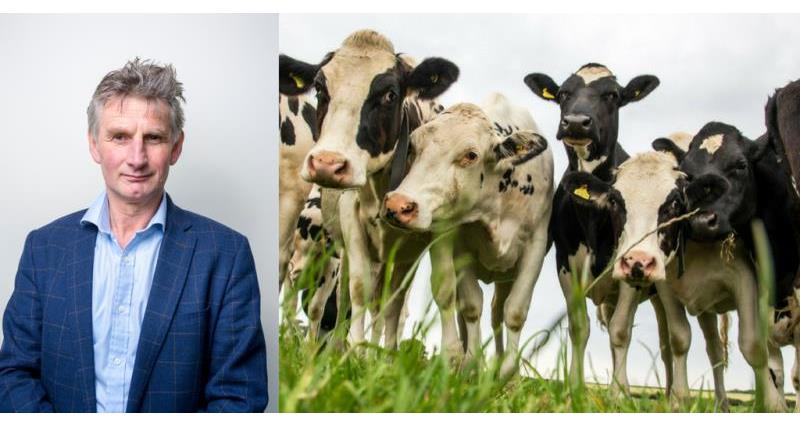Mark Wycherly is an organic dairy and arable farmer from Shropshire, and is the newly elected deputy West Midlands representative on the NFU Organic Forum. Mark converted to organic farming 20 years ago and now milks 80 cows using a robotic milking machine, with his second robot due to arrive this winter. Previously, Mark has grown vegetables and potatoes, alongside cereals.
I signed up to represent my region on the Organic Forum as I feel that producers need to influence policy as much as possible across the organic sector. It can’t all be left to the ‘professionals’ who make decisions on our behalf. The NFU forum does a good job to bring together sectors, certifiers and industry stakeholders to try and find common ground to influence policy. If there is an on-going problem, your feedback is needed. You can find your regional representative here
The forum has the ability to have a direct influence at Government level and we will need to make use of all the avenues at our disposal.
One of the main topics of discussion at the last forum was about our strategic direction for the next two years. A key theme coming through included hosting more on-farm events; the focus being to educate Defra, farmers and other industry stakeholders on organic farm practice. This is a real opportunity to showcase what organic farming delivers for public goods and will be more important as we move through Brexit.
Amongst other topics such as mechanisms to manage business risk and volatility, we also discussed off-farm manures and digestate available to organic farmers and the restrictive rules that sit behind it.
We all know manures and slurries are a vital resource to organic farmers because of their rich nutrient content, but with availability limited, and a potential barrier to land converting to organic arable, a real opportunity has presented itself through the increased number of AD plants operating throughout the country.
The amount of land making use of the digestate from these plants will need to increase as a result, so this is potentially a superb resource of building fertility in our soils; it’s also a renewable energy source and an eco-sound way of disposing of waste. Restrictions on using certain AD plants, for obvious reasons depending on what goes into them, does limit the organic farmers ability to be resourceful – but let’s understand the biology of what happens inside these plants to help educate ourselves before we rule out something which, could if managed properly, provide a wealth of opportunities for farmers.
This is an area where certification bodies and regulators must move with industry developments and emerging markets to find a way which stays true to the principles of organic farming but also recognises research and modern technologies.
This could help to position organic farming in a new light – brining in new thinking into the sector and opening up opportunities for new farming entrants into those sectors, such as arable where we are in desperate need for growth within the UK.
